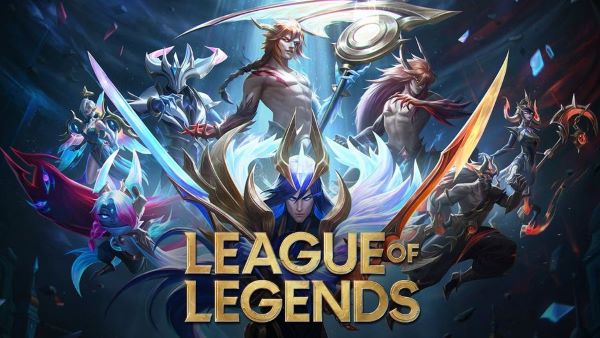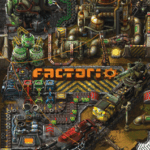KARMA: The Dark World is not your typical horror game. Developed by Pollard Studio and published by Wired Productions, this psychological thriller sets players in a chillingly immersive dystopian world where memory, identity, and reality blur into a surreal nightmare. With its roots in Eastern European art styles, cyberpunk influences, and deeply philosophical storytelling, KARMA: The Dark World aims to redefine narrative horror through psychological trauma, interrogation puzzles, and symbolic environments.
More than just a horror title, KARMA invites players into a dark future filled with government surveillance, broken minds, and societal collapse. It combines first-person exploration, narrative-driven gameplay, and cryptic interactions, drawing inspiration from classics like Silent Hill and modern existential experiences such as Observer or SOMA. With stunning visuals, an oppressive atmosphere, and a constantly shifting reality, KARMA: The Dark World is a deeply cerebral journey that challenges players' perceptions and moral choices.
1. The Origins and Vision of KARMA: The Dark World
Pollard Studio began development on KARMA: The Dark World with a clear objective: to create a deeply atmospheric psychological horror experience unlike anything else in the market. Drawing from Orwellian themes, dystopian cinema, and personal trauma, the team crafted a narrative that explores memory manipulation, identity deconstruction, and mental collapse.
From the very beginning, the game was built as a narrative-first experience. The developers used Unreal Engine to push visual storytelling, focusing on cinematic lighting, surreal set design, and symbolic architecture. Every scene was designed to evoke emotional discomfort, making the world itself feel like an unstable dream.
2. Storyline and Core Narrative Themes
Set in a dystopian world ruled by an authoritarian regime, players assume the role of an unnamed agent working for a mysterious organization called ROAM. Their job is to interrogate and examine the minds of others—diving into fragmented memories to uncover truth and guilt. But as the game unfolds, it becomes clear that not everything is as it seems. The line between the interrogator and the accused begins to blur.
Themes of memory distortion, psychological repression, and moral ambiguity are central to KARMA's story. The player’s choices and interpretations shape how the narrative unfolds. The game's story is not told in a linear format, but rather through visual metaphors, obscure dialogue, environmental clues, and emotional triggers.
3. Gameplay Mechanics and Exploration
KARMA: The Dark World plays from a first-person perspective and blends exploration, puzzle-solving, and psychological interrogation. Players move through twisted dreamscapes, solving cryptic puzzles, interacting with distorted figures, and uncovering narrative fragments. These experiences simulate mental breakdowns, repressed traumas, and corrupt ideologies.
Rather than rely on combat, the game emphasizes psychological tension. Darkness, visual noise, and audio cues create a sense of fear and unease. Hallways shift unexpectedly, objects appear out of nowhere, and symbolic horrors emerge from subconscious fears. The goal is not to fight but to survive and understand.
4. World Design and Environmental Symbolism
The environments in KARMA are meticulously crafted and intentionally surreal. As the player journeys deeper into the minds of others, the world becomes more abstract and metaphorical. Broken corridors represent fractured memories. Shifting architecture suggests paranoia and loss of control. Industrial zones convey oppression, while ethereal forests hint at forgotten peace.
Each area in the game is rich with symbolism. The use of light and shadow, sound distortion, and grotesque imagery immerses players in a world that constantly questions reality. The influence of painters like Zdzisław Beksiński and filmmakers like David Lynch is evident throughout the game’s visual language.
5. Psychological Horror and Fear Tactics
Unlike traditional horror games that rely on jump scares or gore, KARMA leverages existential dread and psychological horror. The fear here is rooted in confusion, helplessness, and the fear of losing one's mind. Sound design plays a huge role—whispers, distorted voices, heavy breathing, and distant screams all serve to unsettle.
The unpredictability of the world also heightens tension. Objects change locations, familiar paths loop endlessly, and the player’s own memories become unreliable. This instability creates a constant low-level anxiety that deepens as the game progresses.
6. Narrative Choice and Player Interpretation
KARMA encourages players to interpret what they see and experience. There are multiple endings, each determined by the choices the player makes during key moments. These choices are not always explicit—instead, they are hidden within moral dilemmas, dialogue options, and reactions to events.
This design ensures that players are never just passive observers. Instead, they must engage with the story, reflect on their decisions, and grapple with the consequences. Each playthrough may yield a different understanding of the truth, making replayability both rewarding and necessary for a full grasp of the narrative.
7. Art Direction and Visual Experience
One of KARMA’s most praised elements is its visual artistry. The game employs a muted color palette punctuated by eerie lighting, surreal landscapes, and grotesque imagery. Environments feel oppressive yet mesmerizing, drawing players into a world that feels simultaneously familiar and alien.
Motion blur, film grain, chromatic aberration, and other visual distortions are used to reflect mental instability. Characters often appear incomplete or uncanny, evoking fear through design rather than shock. The artistic direction is integral to the game’s identity, transforming it into a playable piece of digital art.
8. Soundtrack and Audio Design
Audio plays a crucial role in KARMA’s immersion. The ambient soundtrack is haunting and minimal, often relying on drones, mechanical sounds, and dissonant tones to build unease. The music never dominates the scene but instead enhances the mood and emotional tone of each environment.
Voice acting is intentionally cryptic. Characters speak in riddles or fragmented sentences. Background noises like dripping water, creaking metal, and sudden static create an environment that is never truly safe. Every sound in KARMA is designed to disorient and disturb.
9. Influences and Genre Positioning
KARMA: The Dark World draws clear inspiration from other psychological horror masterpieces like Silent Hill 2, Layers of Fear, The Medium, and Soma. However, it carves its own space by combining political commentary with existential horror. The dystopian regime of ROAM, the use of interrogation as a game mechanic, and the personal trauma of the protagonist elevate the game into thematic territory rarely explored in gaming.
While horror fans will find familiar elements, KARMA is more meditative and introspective. It appeals to players who enjoy slow-burn tension, abstract storytelling, and layered symbolism. It’s a game for thinkers, not just thrill-seekers.
10. Future Potential and Cultural Impact
Though still an emerging title in terms of public reach, KARMA: The Dark World has the potential to become a cult classic. Its unique blend of horror, art, and philosophy fills a gap in the market for intelligent, narrative-driven horror games. As interest in psychological storytelling continues to grow, KARMA could influence future titles seeking to push the boundaries of interactive narrative.
With continued developer support, possible expansions, and increased visibility through indie showcases and streaming, KARMA is poised to become a major talking point in the horror community. Its emphasis on introspection, symbolism, and choice resonates in a gaming world increasingly hungry for depth and meaning.
Conclusion: KARMA – A Harrowing Descent into the Human Psyche
KARMA: The Dark World is more than a horror game. It is a haunting meditation on the fragility of memory, the consequences of control, and the terror of losing oneself. Its disturbing environments, cryptic storytelling, and abstract puzzles offer a unique experience unlike anything in mainstream gaming.
This is not a game for everyone. It demands patience, reflection, and a willingness to be disturbed. But for those who embrace its artistic vision and psychological depth, KARMA offers one of the most unforgettable journeys into madness and meaning in the medium’s history.
Final Overall Rating: 4.8 out of 5
KARMA: The Dark World isn’t here to comfort you—it’s here to challenge your perception, unsettle your mind, and leave you thinking long after the credits roll.




























